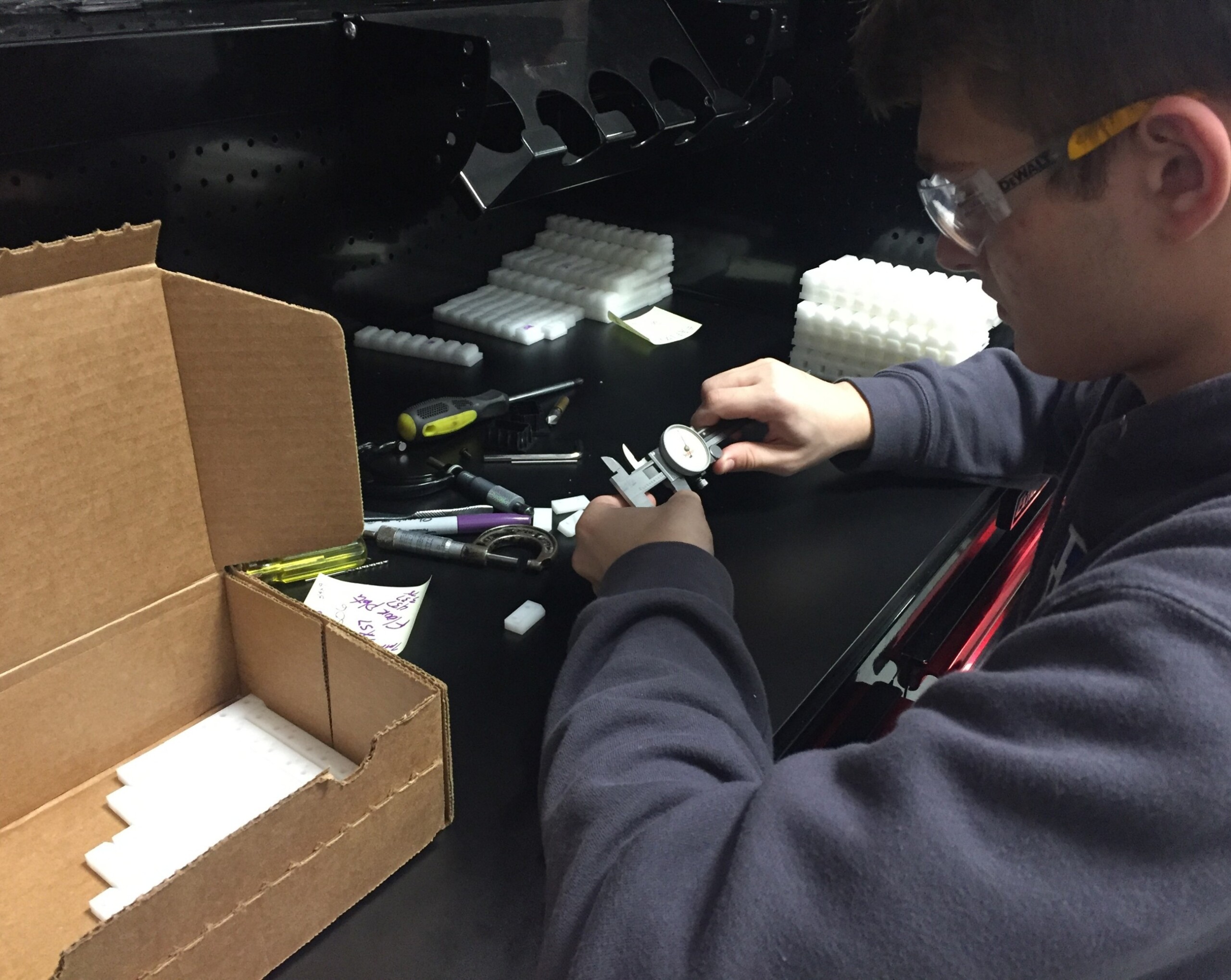
Student-Run, Student-Led Enterprises Addressing Current Educational, Economic Needs and Interests
76% of Gen Z aim to be their own boss, according to the Bureau of Labor Statistics. And globally, nearly half of the workforce are freelance or independent contractors, according to Properity for America. If this represents a major direction in the future of work, how can schools respond? One of the more exciting developments may be Student-Run or Student-Led Enterprises.
Student-Led Enterprieses are businesses managed by students that offer valuable practical experience, skill development and entrepreneurship, according to the Student-Run Business Association. These allow students to apply classroom learning to real-world scenarios that fosters teamwork, problem-solving and project management skills.
Serving eight school districts in northwestern Pennsylvania, Student-Run Manufacturing Enterprises provides high school students with real world experience running all aspects of a manufacturing enterprise while making real parts for real companies within a high school or Career Technical Center, according to President Rebecca Walker. She said their students can learn and perform various jobs including marketing, sales, quoting, purchasing, design, manufacturing, inspection, quality control, shipping, accounting and customer service. Walker added that products and parts produced by a student-run manufacturing enterprise add value to manufacturing operations, supply chains and their customers’ businesses, while at the same time allowing students to connect with local industry that can lead to rewarding career opportunities.
“Student-run enterprises give students the experience of managing all aspects of a company – marketing, production, finance – while still in high school,” said Walker. “Manufacturing-focused enterprises are especially relevant today, as many industry leaders are near retirement and these programs help build the next generation of skilled professionals.”
In Central California, Valley ROP is looking to use Student-Led Enterprises to further expand real world opportunities for their students. Representing eight high schools from seven school districts, Valley ROP Superintendent Fabrizio Lofaro said that instead of just completing coursework, students get to design, manage and run a business that connects to the pathway they are studying.
“This makes their learning more hands-on and helps them see how what they are doing in class connects to life outside of school,” said Lofaro. “For students, this is important because it builds skills they will need in the future. Employers want young people who can take initiative and think critically, and by leading an enterprise, our students get to practice exactly that.”
Lofaro, who is receiving funding from California’s Strong Workforce Grant, believes that the timing is right for education to make Student-Led Enterprises a focus for all students.
“Many students want to build something of their own where they can take charge and see real results,” said Lofaro. “This generation doesn’t just want to learn about careers; they want to experience them in real time.”
Although originally located more frequently at the college level, new models are being developed across the country for high school students. At SRME in Pennsylvania, President Walker said that they are a work-based learning model where students from various disciplines – business, marketing, engineering, and skilled trades – collaborate to run a real company inside their school. She said that they produce actual parts for real customers and build relationships with local industry partners that often lead to jobs, apprenticeships, or college opportunities.
“These enterprises usually combine classroom curriculum (like business or advanced manufacturing courses) with an extra-curricular component (such as a club or activity), allowing students from different programs to work together on business operations,” said Walker.
One model program is the partnership between Parkway Industrial in Bradford, PA and the Zippo Manufacturing Company who are known for Zippo lighters and other similar products. Walker said that Zippo needed a part for a custom machine and students from Bradford Area High School’s Enterprise Parkway Industrial took the engineers’ drawings, converted them into compatible software, and manufactured the part. And now, Zippo regularly orders this part from the school, recognizing the enterprise as an official vendor in their purchasing system. Payments run through the school’s activity club, which supports materials and operations.
“These partnerships also help industries build connections with future talent. One Parkway Industrial student was hired by Zippo immediately after graduation and began an apprenticeship – proof of how these programs create a local talent pipeline,” said Walker. “Looking ahead, several engineering students from Bradford Area High School will attend a workshop with Zippo engineers at the factory. Additionally, Parkway Industrial students have secured paid college internships through their relationships with American Refining Group (ARG)—North America’s longest continuously operating oil refinery—which frequently hosts students for refinery tours.”
Other programs that have become SRME models, according to Walker, are Lion Manufacturing at Clarion-Limestone High School and Titusville Rockets Manufacturing at Titusville High School. Outside of Pennsylvania, Walker said other noteworthy Student-Run Enterprises are Bulldog Manufacturing at Alden High School in New York and Cardinal Manufacturing in the Eleva-Strum School District in Eleva, Wisconsin.
Also in Central California, Jonathan Hinojosa teaches a Logistics and Warehouse Management Program at the Farber Educational Campus in the Fresno Unified School District. And while his program’s focus is on getting students certified in forklift, OSHA, Six Sigma and other industry standards, he has decided to take advantage of a natural opportunity to develop a Student-Run Enterprise in his 10,000 square foot warehouse. Because his program has a need to re-purpose pallets that are a regular part of the receiving of shipped goods on a daily basis, his students are going to be making pallet furniture in order to provide a quality product at a great price to the local community.
“Students will gain valuable entrepreneurial and start-up experience as they see how to run a business,” said Hinojosa. “In addition to the skills and experience, I want them to also realize that one doesn’t necessarily need lots of money to start a business. But rather, they need a great idea that fulfills an existing need.”
Challenges to entry, according to the early adopters, relate to funding, sustainability, solid partnerships and even how to manage the financial aspects of generating revenues. However, they also see Student-Run Enterprises only increasing in demand and scope.
“Our goal is for these enterprises to grow and become sustainable even after the two years of grant funding ends,” said Lofaro. “This forces us to raise the bar and think about how these enterprises connect to long-term career readiness. If we use the grant wisely, we can plant the seeds of something that will last well beyond the two years of funding.”
Walker believes this is something that all schools and districts should be considering launching a Student-Run Enterprise Program. She said her organization helps schools get started by sharing best practices, offering consulting and supplemental curriculum as well as how to connect and utilize industry partners.
“Start by getting buy-in from your superintendent or principal, since selling products involves financial, legal, and insurance considerations,” said Walker. “Then, reach out to local businesses to build partnerships and support.”
Source link



